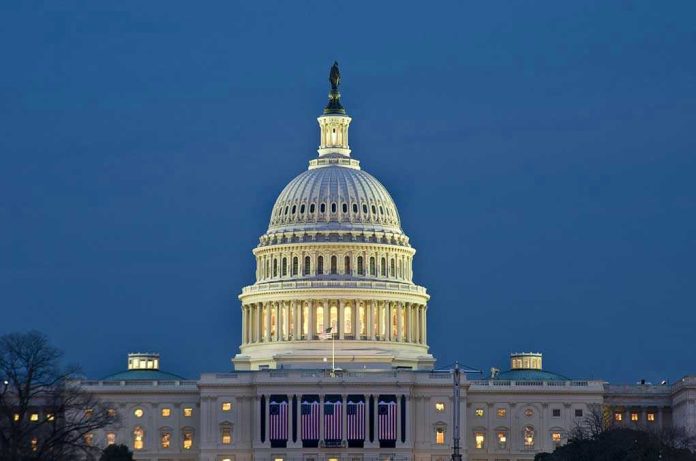
Congress now faces a historic crackdown as a bipartisan bill demands lawmakers and their families quit trading stocks, testing whether Washington can finally shut down self-dealing and restore public trust.
Story Snapshot
- Bipartisan lawmakers introduced the Restore Trust in Congress Act to ban congressional stock trading and require divestment.
- The bill responds to years of scandals and overwhelming public demand for ethics reform in Washington.
- Strong enforcement measures and minimal loopholes distinguish this legislation from previous efforts.
- Support from both parties and President Trump signals a rare moment of unity on government accountability.
Bipartisan Push to End Congressional Stock Trading
Representatives Chip Roy (R-TX) and Seth Magaziner (D-RI), joined by 16 House colleagues from both sides of the aisle, introduced the Restore Trust in Congress Act in September 2025. This legislation would ban Members of Congress and their immediate families from trading individual stocks and require them to divest existing holdings, with only limited exceptions. The move comes after years of public outrage over lawmakers allegedly profiting from non-public information, fueling concerns about conflicts of interest at the heart of the federal government.
Public skepticism about congressional stock trading reached a boiling point after multiple reports of questionable trades during major events, such as the COVID-19 pandemic. The 2012 STOCK Act only required disclosure, not prohibition, and many Americans saw it as insufficient. Recent polling shows that 86% of Americans now support a total ban on congressional stock trading, and both progressive and conservative lawmakers have joined forces to answer that demand. Advocacy groups and ethics watchdogs have amplified pressure, calling for decisive action to restore faith in government.
Key Provisions and Enforcement
The Restore Trust in Congress Act stands out for its strong enforcement mechanisms and minimal loopholes, setting it apart from previous attempts at reform. The bill mandates divestment from individual stocks and bans trading by lawmakers and their families, with clear and limited exemptions. Violators would face significant penalties, helping to deter unethical behavior. Congressional leadership, including Speaker Mike Johnson, Minority Leader Hakeem Jeffries, and President Trump, have all expressed support, increasing the bill’s chances of passing and signaling a unified front on ethics reform.
Bipartisan sponsors emphasize the urgent need for action, with Rep. Magaziner stating the bill is “our best chance at finally getting it done,” and Rep. Roy highlighting its balance of compliance with tough restrictions. The legislation awaits committee hearings and a House floor vote, while a parallel bill has advanced in the Senate, giving momentum to the reform effort. Press conferences and public statements have kept the issue in the spotlight, ensuring lawmakers remain accountable to both their constituents and the broader public.
Implications for Washington and the Nation
If enacted, the ban on congressional stock trading promises sweeping changes in how lawmakers manage their finances and conduct their public duties. In the short term, members of Congress and their families will face increased scrutiny and may need to divest significant assets, altering personal investment strategies. Over the long haul, the bill could set a precedent for similar reforms at state and local levels, potentially reducing both real and perceived conflicts of interest that have plagued American politics for decades.
My guess is that Nancy Pelosi will retire if this bill passes. She will not long be able to do insider trading.
Bipartisan Lawmakers Introduce Bill to Ban Stock Trading by Congress Members https://t.co/Wm5GKAxlnH
— Doyle Stowe (@DoyleStowe) September 4, 2025
Ethics advocates and political experts argue that passing the Restore Trust in Congress Act would mark a turning point for government transparency and accountability. By removing the temptation for lawmakers to profit from insider knowledge, Congress can begin to rebuild public trust and demonstrate a commitment to serving the American people, not their own financial interests. Critics warn of challenges in enforcement and potential unintended consequences, but the broad bipartisan support and overwhelming public demand leave little doubt that Americans expect action, not more excuses, from their elected officials.
Sources:
Press Release: Magaziner and Roy Introduce Bipartisan Bill to Prohibit Congressional Stock Trading
Introduction of Bipartisan Stock Trading Ban in the House
OAIMA: News Article on Congressional Stock Trading Ban




